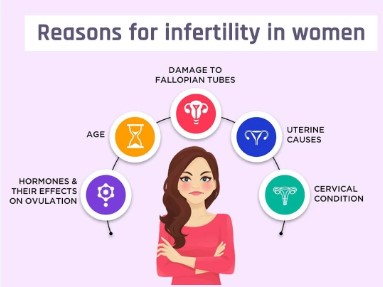Infertility is a worry for many couples throughout the world, and recognising the variables that raise a woman’s risk might help her seek prompt and successful treatment. If you are in Pratap Nagar, Jaipur, and seeking for infertility treatment, you should be aware of the many risk factors that may affect your fertility.
1. Age
Age is one of the most significant factors affecting a woman’s fertility. As women age, particularly after the age of 35, the quality and quantity of their eggs decrease, making it more challenging to conceive. This natural decline in fertility emphasizes the importance of timely medical consultation if you’re planning to have children later in life.
2. Hormonal Imbalances
Hormonal imbalances can disrupt the normal ovulation process. Conditions such as polycystic ovary syndrome (PCOS) and thyroid disorders are common culprits. PCOS, for example, affects the balance of reproductive hormones, leading to irregular menstrual cycles and ovulation issues.
3. Lifestyle Factors
Lifestyle choices significantly impact fertility. Smoking, excessive alcohol consumption, and drug use can damage the reproductive system and decrease fertility. Additionally, a diet lacking essential nutrients or one that leads to obesity can also impair fertility. Maintaining a healthy lifestyle is crucial for improving reproductive health.
4. Medical Conditions
Several medical conditions can affect a woman’s fertility. Endometriosis, where tissue similar to the lining inside the uterus grows outside it, can cause pain and infertility. Similarly, pelvic inflammatory disease (PID), often resulting from sexually transmitted infections, can lead to scarring and blockages in the fallopian tubes.
5. Environmental and Occupational Hazards
Exposure to certain environmental toxins and chemicals, such as pesticides, heavy metals, and industrial chemicals, can adversely affect fertility. Women working in certain industries may be at a higher risk of exposure to these harmful substances, which can impact their reproductive health.
6. Stress
Chronic stress can interfere with the production of reproductive hormones, affecting ovulation and menstrual cycles. High levels of stress might also lead to lifestyle choices that further contribute to infertility, such as poor diet, lack of exercise, or substance abuse.
7. Genetic Factors
Some women may have a genetic predisposition to infertility. Conditions like Turner syndrome and other chromosomal abnormalities can affect ovarian function and fertility.
Conclusion
Understanding the factors that increase a woman’s risk of infertility is crucial for early intervention and treatment. If you are facing infertility issues, consider consulting with a Infertility Treatment in Pratap Nagar, Jaipur, who can provide personalized care and the latest treatment options to help you achieve your dream of parenthood. Taking proactive steps towards a healthy lifestyle and seeking timely medical advice can significantly improve your chances of conception.






Comments